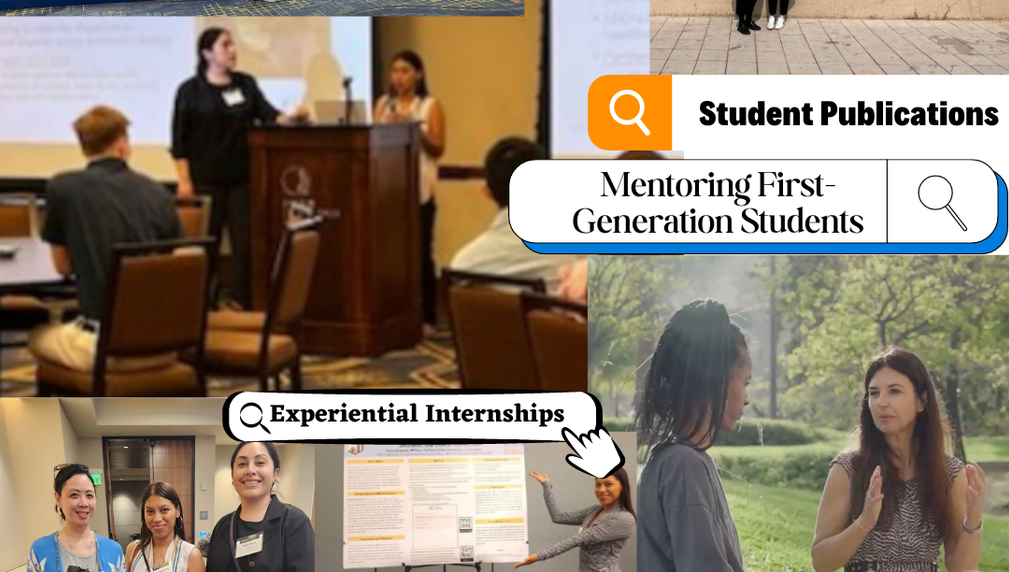Improving the Health Access & Utilization in Los Angeles County
Improve LA's health resource utilization and access among underrepresented communities, including immigrants and refugees. Concurrently, underrepresented students, majority being Public Health majors from CSULA, are MiOra Health Ambassadors (MiHA) in LA. Students take part in cutting edge research with the goal of improving health access and equity. While gaining valuable experience in public health research and heightening their resumes, students contribute to bettering the health/wellness of their communities through educational interventions

What is the primary issue area that your application will impact?
Health Care Access
In which areas of Los Angeles will you be directly working?
Central LA
East LA
South LA
West LA
In what stage of innovation is this project, program, or initiative?
Expand existing project, program, or initiative
What is your understanding of the issue that you are seeking to address?
Although there have been advances in health access, coverage, and utilization since the Affordable Care Act, we understand there is an omnipresent loom of racial/socioeconomic health disparities/barriers among Angelinos due to increased need/size. 62% of the over 1.5million CHC LA County patients are Latino, 10% Black, and 7% Asian/Pacific Islander. These disparities can be addressed by educating Angelinos about health care utilization and connecting them to physical / mental health services /resources. Most of the ones facing health inequities are immigrants/refugees, who may not be provided with adequate resources to learn about health care and utilization in the US and are still trying to settle into a new country. First-generation students face barriers obtaining valuable experience in health/STEM fields including challenges balancing academics, necessary part-time jobs, and day-to-day life. Due to these challenges, underrepresented students face barriers advancing in their careers
Describe the project, program, or initiative this grant will support to address the issue.
MiOra's, Closing the Disparities in Healthcare Access and Utilization, has been ongoing for the last two years. This multi-faceted initiative works to address multiple LA2050 issues. HIPAA-certified MiHAs engage with their community to administer a survey-based study which assesses the current knowledge, barriers and behavior toward healthcare access and utilization. MiHAs implement an educational component that highlights key information about accessing and using health care and provides helpful resources to their communities, including refugees/immigrants. The educational component includes information on where to access healthcare, health insurance, certain cancer symptoms, risk factors, diagnosis / treatment options, as well as the availability of clinical trials. Through MiOra's educational intervention, MiHAs develop their skills in public health research (ie. IRB protocol and survey development, survey administration, participant recruitment, data analysis, and manuscript development) as well as their professional skills. Ultimately, while underrepresented students are working to better understand and address the heath behaviors in their communities, students are also working to better their skillset and advance their resumes, while gaining vital experience professionally and academically. Therefore, this project also works to address Youth Economic Advancement because students are working to develop their skillset through our no-barrier experiential internship
Describe how Los Angeles County will be different if your work is successful.
Our project is compelling because it takes a multi-faceted approach to address three key issues that are important to Angelinos - Health Access, Youth Economic Advancement, and Immigrant and Refugee support. Our vision for success is to ensure that we are connecting Angelinos, including newcomers, to the necessary resources to educate and help them utilize applicable healthcare resources. We are striving to wield our community of health advocates to create a larger and more open community that promotes health and wellness; one which Angelinos coming from underrepresented backgrounds can turn to acquire necessary information and resources they may need. All the while, students working as health ambassadors grow their career profiles, advance their skills, foster connections, build their confidence, and contribute to improving the health access of their communities.
What evidence do you have that this project, program, or initiative is or will be successful, and how will you define and measure success?
A key element of this educational intervention that is implemented by MiHAs is that there are pre- and post-education surveys that are administered to participants. This way, we can assess the base-level of understanding and behaviors of the LA community toward their own health and healthcare needs, resources, as well as the barriers they may face. The trained MiHA ambassadors implement the educational component and following this, a post-education survey is administered. This survey will work to assess the impact that the educational component of the intervention made on the participants. Since similar projects have been conducted in the past, the positive results observed from post-education surveys confirm that this project works to address the issues that we have identified. In addition, MiOra stays up to date with the track record of their students following their experience at MiOra, many students have gone onto pursue competitive careers and post-graduate degrees.
Approximately how many people will be impacted by this project, program, or initiative?
Direct Impact: 10
Indirect Impact: 500